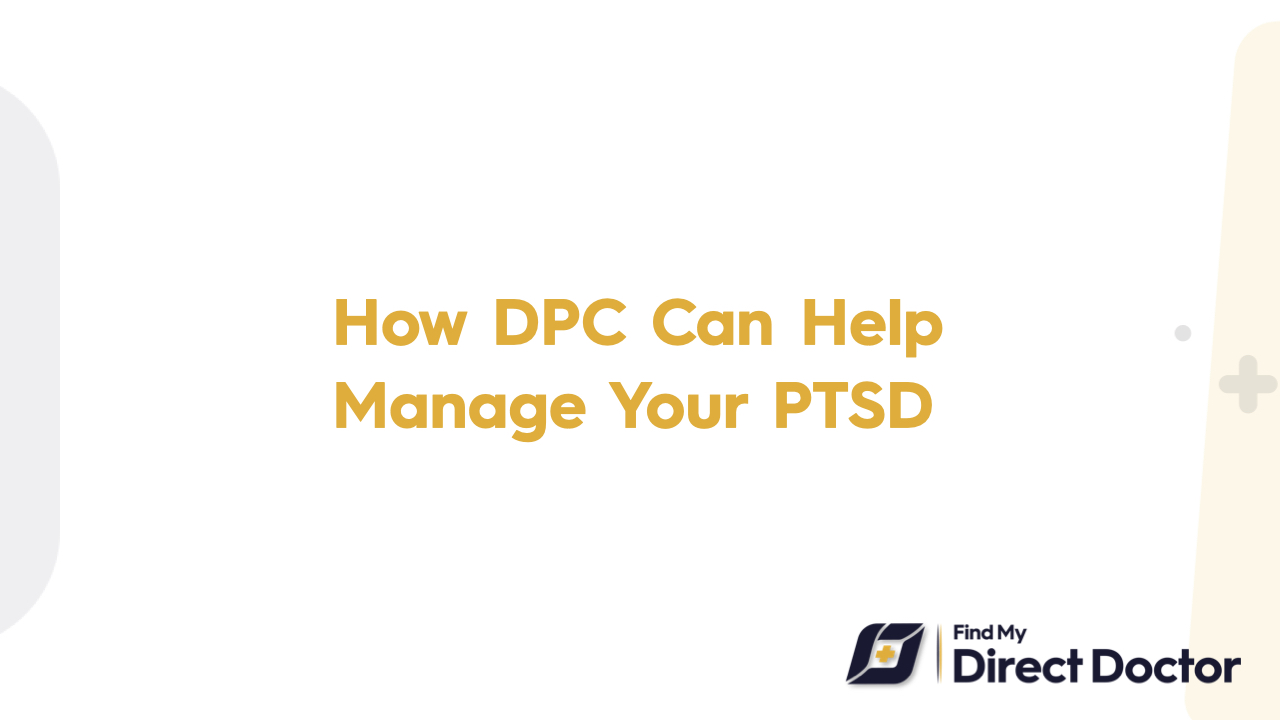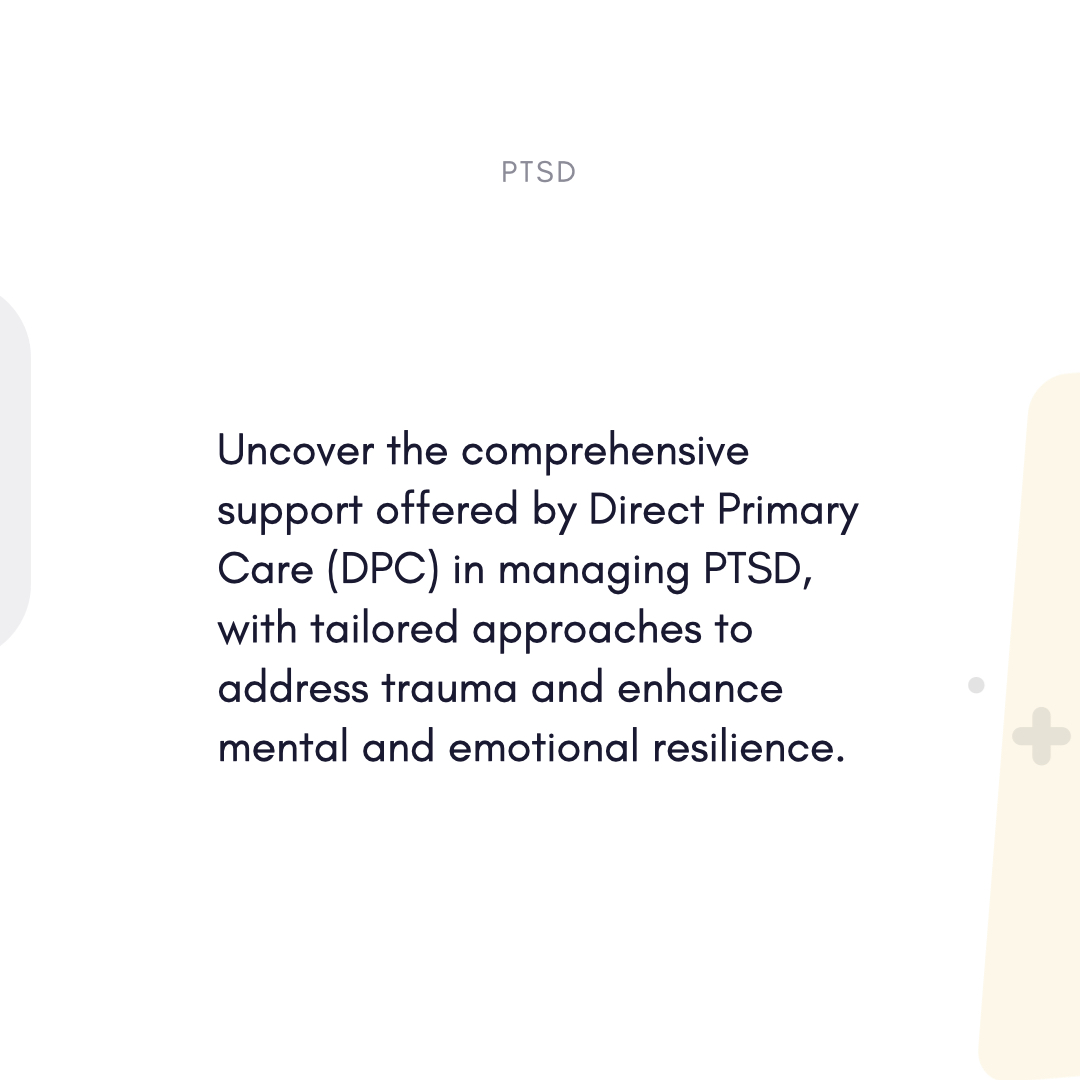PTSD and Direct Primary Care (DPC): Healing Trauma with Personalized, Affordable Care
Dreams that shock you to wake. Hypervigilance that wears you out soul wise. For twelve million Americans suffering with PTSD, this trauma aftermath is not only psychological but also physical. There is hope: Direct Primary Care (DPC) offers a compassionate, continuous partnership to negotiate healing, while traditional treatment sometimes means waiting months for therapy or cycling through drugs.

Appreciating PTSD
Following traumatic events (war, assault, disaster), PTSD results from:
- Re-experiencing: Flashbacks, dreams, nightmares
- Avoidance is avoiding trauma cues
- Hyperarousal: Irritation, sleeplessness, hypervigilance
- Negative thinking: guilt, detachment, emotional numbness
Depression, drug abuse, persistent pain are comorbidities. Trauma-focused therapies are first-line treatment advised by the American Psychological Association.
DPC Changes: Treatments for PTSD
Operating on a membership model usually ranging from 100 USD to 200 USD per month, Direct Primary Care (DPC) provides unlimited access to your doctor for a set fee. For PTSD sufferers, this means no co-pays, no therapy waiting lists, and a care plan as distinct as your trauma.
1. Diagnosis and immediate crisis help
The easily available DPC model guarantees:
- 24/7 telehealth during dissociation episodes or panic attacks.
- Same-day assessments applying PTSD checklists (PCL-5).
- Quick referrals: EMDR or CPT therapists discounted with cash-pay.
2. Individualized, Evidence-Based Medicine
DPC doctors design customized plans compliant with VA/DoD recommendations:
- Cognitive Processing Therapy (CPT) or Prolonged Exposure (PE) trauma-oriented therapy.
- Medication management calls for either cannabis/CBD coordination, prazosin for nightmares, or sertraline.
- Referrals for somatic therapies—yoga, acupuncture, or biofeedback.
3. Complete, Economical Assistance
DPC lowers emotional and financial burden by:
- Cutting drug prices: Trazodone or venlafaxine's wholesale price.
- Combining mental health under one roof with primary care is known as integrated care.
- Community resources: programs for veterans, service dogs.
Advantages of DPC for PTSD Patients
1. Unmatched Accessibleability
- Direct provider access on sleepless nights or flashbacks.
- There are no wait times for changes in medication or therapy starts.
2. Customized Interventions
- Phase-based therapy—safety → processing → reintegration—for complex PTSD.
- Veterans: MST-specific care and VA benefit navigation.
3. Open Cost Transparency
- Membership consists in crisis management, therapy coordination, and consultations.
- Typical savings from avoiding ER visits and 150 USD/hour therapy rates are 3,000 USD+ yearly.
Personal Success Stories from Real Life
- Case 1: Reducing nightmares, 34-year-old combat veteran Jake used DPC-prescribed prazosin and weekly PE sessions. Mentors other veterans now as well.
- Case 2: Under trauma-informed yoga and sertraline, under coordination by her DPC team, Lena, 28, with assault-related PTSD, found safety.
Questions and Answers: DPC and PTSD
- Q: DPC can manage SI or strong dissociation?
- A: Yes. If necessary, DPC doctors coordinate partial hospitalization, crisis plans, and ketamine treatment.
- Q: Without insurance, is DPC reasonably priced?
- A: Yes. Members pay 50 USD–80 USD/session instead of 150 USD–200 USD and save on meds and treatments.
- Q: What about group therapy or EMDR?
- A: A DPC works with trauma experts to guarantee sliding-scale rates and virtual group choices.
DPC Offers a Win for PTSD Patients: Why
Emphasizing DPC's following of clinical guidelines, the National Center for PTSD supports:
- Treatments should be matched to trauma type—single-event vs. complex.
- Tools to monitor triggers and development empower you.
- Trust: Consistent, safe relationship replaces disjointed care.
Take Back Your Life Beyond Tragic Events
PTSD need not define your future. One breath, one step at a time, DPC helps you to find a companion who listens without judgment, heals with knowledge, and walks with you toward peace.






